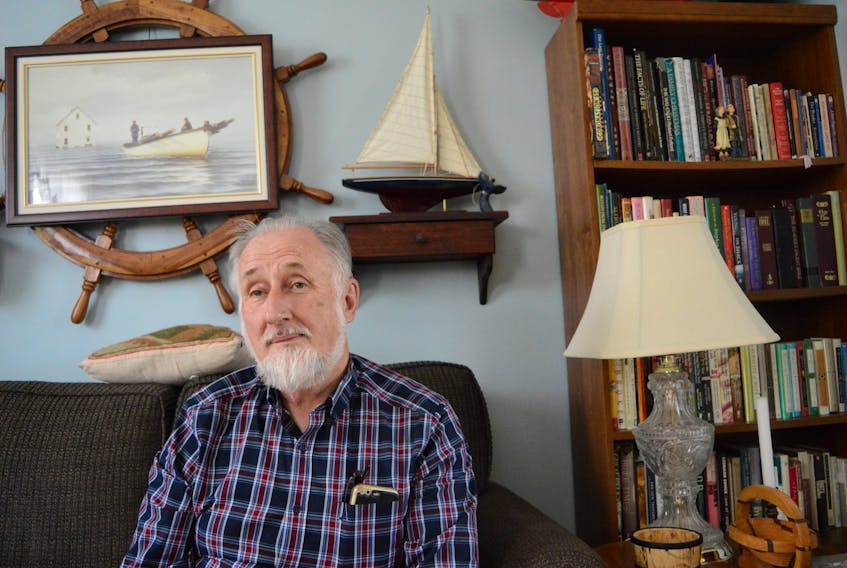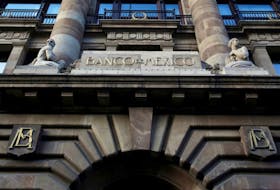CENTRAL, N.L. - First there was eBay, creating uncertainty in the retail space, then Uber shaking up the local transportation industry. Now the big buzz is all about Airbnb and its impact on tourism and housing.
And it’s no longer just a topic for the big cities.
What is unclear is what impact Airbnb and platforms like it are having in central Newfoundland.
“It’s a serious, serious problem with no solution in sight,” said David Hayashida, chair of Adventure Central Newfoundland, an organization that represents tourism operators in the region.
Brandon Copeland, a St. John’s operator and real estate and investment consultant, disputes that.
“Many studies suggest that it actually strengthens the tourism industry,” he said.
Mark Whiffen, a Grand Falls-Windsor councillor responsible for examining the issue, is not so sure. “We actually see Airbnbs as a little bit of a benefit to our community,” he said.
What everyone does seem to agree on is that the sharing economy in the tourism space is here to stay. A quick search of the Aribnb site alone reveals dozens of options in the central region, and there are a plethora of other sites and options for people looking to enter the market. The province estimates there are more than 800 in Newfoundland and Labrador.
The minister of tourism, Christopher Mitchelmore, has acknowledged many of them are operating outside the law, but the provincial government has chosen to study the issue, not cracking down on them.
Airbnb
The sharing, or peer-to-peer (P2P), economy has always existed, but the internet has allowed it to flourish. Formerly known as the “underground” economy, it is simply private individuals interacting to conduct transactions directly that normally would take place between a commercial business and consumer.
It largely exists in a grey area of the law and has always raised concerns about public safety, consumer protection, fairness and taxation.
“The nature of the sharing economy is society working together to share expensive resources that are under-utilized.”
- Brandon Copeland, Airbnb operator
Airbnb is the largest of many online platforms that connect people who want to rent out their home, a room, or a myriad of other spaces to travellers looking for a cheaper or different kind of tourism experience than that provided by hotels, bed and breakfasts and other traditional establishments.
To hear Copeland describe it, it is a noble endeavour.
“The nature of the sharing economy is society working together to share expensive resources that are under-utilized (like spare bedrooms and cars),” he said.
Wayne Hallett, who operates the Prints of Whales Inn in Sandringham, sees it as undermining legitimate businesses such as his.
“Airbnb is just a platform that allows unlicensed accommodations to thrive,” he said. “Prior to Airbnb, we still had unlicensed accommodations, but the platforms that they were able to advertise on were not front and centre so they weren’t having a major impact on the tourism industry, but Airbnb has such a high profile that now unlicensed accommodations sometimes have a higher profile than those that are licensed and on an approved website.”
Hallett and a small group of other bed and breakfast operators from central Newfoundland got together and conducted a survey sent to 1,104 tourism enterprises of which 340 (32 per cent) responded. Nearly 80 per cent of respondents “are concerned about the ability for unlicensed accommodations to operate in the province of Newfoundland Labrador,” and 49 per cent felt that “the presence of unlicensed accommodations (will negatively) impact the provincial tourism industry,” Hallett said. Only 12 per cent “felt they will have a positive impact.”
Level playing field
Nobody contacted by The Central Voice has gone as far as to say non-traditional accommodators should be shut down, but there is nearly universal agreement something regulatory needs to be done.
“Don’t get me wrong, I think the idea of Airbnb and the sharing economy, that’s here to stay, but I think it just needs to be controlled in such a way that it is fair to the existing operators and, certainly at the same time, that public safety is not compromised,” Hayashida said.
The idea of fairness and a level playing field comes up repeatedly, but what “level” means is a matter of contention.
“Don’t get me wrong, I think the idea of Airbnb and the sharing economy, that’s here to stay, but I think it just needs to be controlled in such a way that it is fair to the existing operators and, certainly at the same time, that public safety is not compromised.”
- David Hayashida, chair of Adventure Central Newfoundland
The current Tourist Establishments Regulations require all tourist establishments to be licensed.
“Tourist establishment” is defined in the current 22-year-old legislation as: “a cabin, cottage, hotel, motel, motor hotel, inn, tourist home, tourist information centre, hospitality home, tour company and trailer establishment, and a camp, cabin, tent camp or other premises erected or used for the purpose of catering to hunters and sport fishers, and a boat on which food and overnight accommodation is provided for hunters, sport fishers or travel parties…”
In other words, pretty much anything being rented on an overnight, short-term basis to non-residents is covered by the existing law.
And the law is unequivocal on licensing.
“A person, other than the holder of a licence issued and valid under these regulations, shall not operate a tourist establishment in the province,” it states.
The good news for these operators is that the requirement to be licensed is as simple as getting a Canada Select one star rating. One star is not a high bar.
“At this level, guests should expect clean and well-maintained accommodations providing the necessary facilities for an enjoyable stay,” the Canada Select website states. “Criteria includes standards such as room size, window screens and coverings, clothes storage, linens, door lock, smoke detector, and parking facilities.”
Some Airbnb operators have already gone this route, but most are still reluctant, and, in any event, have thus far been able to continue to operate outside the law.
Part II
Next week, The Central Voice will dig deeper into the issues that divide traditional and non-traditional accommodation providers such as the impact on business and the potential danger for guests. Two weeks from now, Part III of this series will examine the issues for the regulators and what the way ahead for the province might look like.









